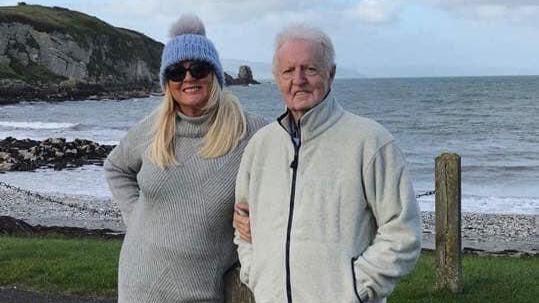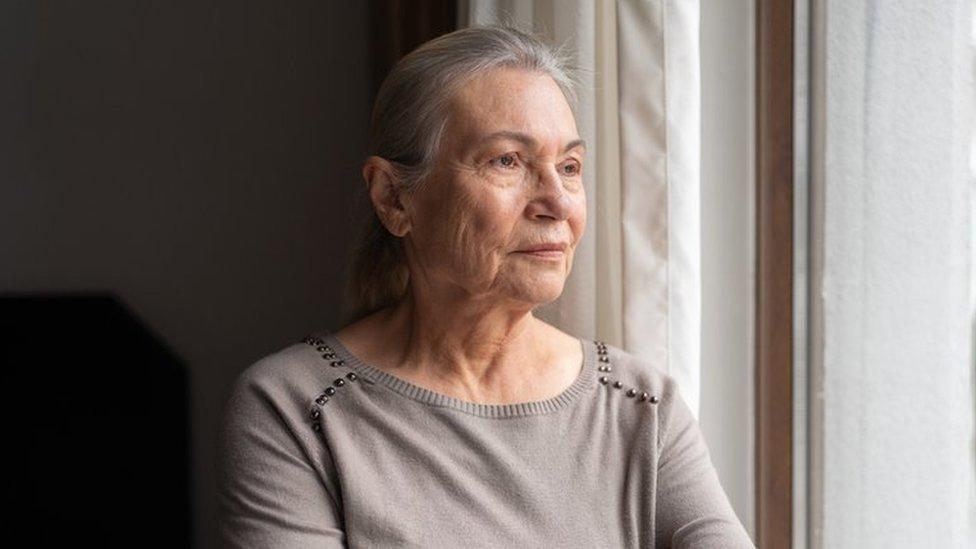Colum Eastwood to vote in favour of assisted dying bill
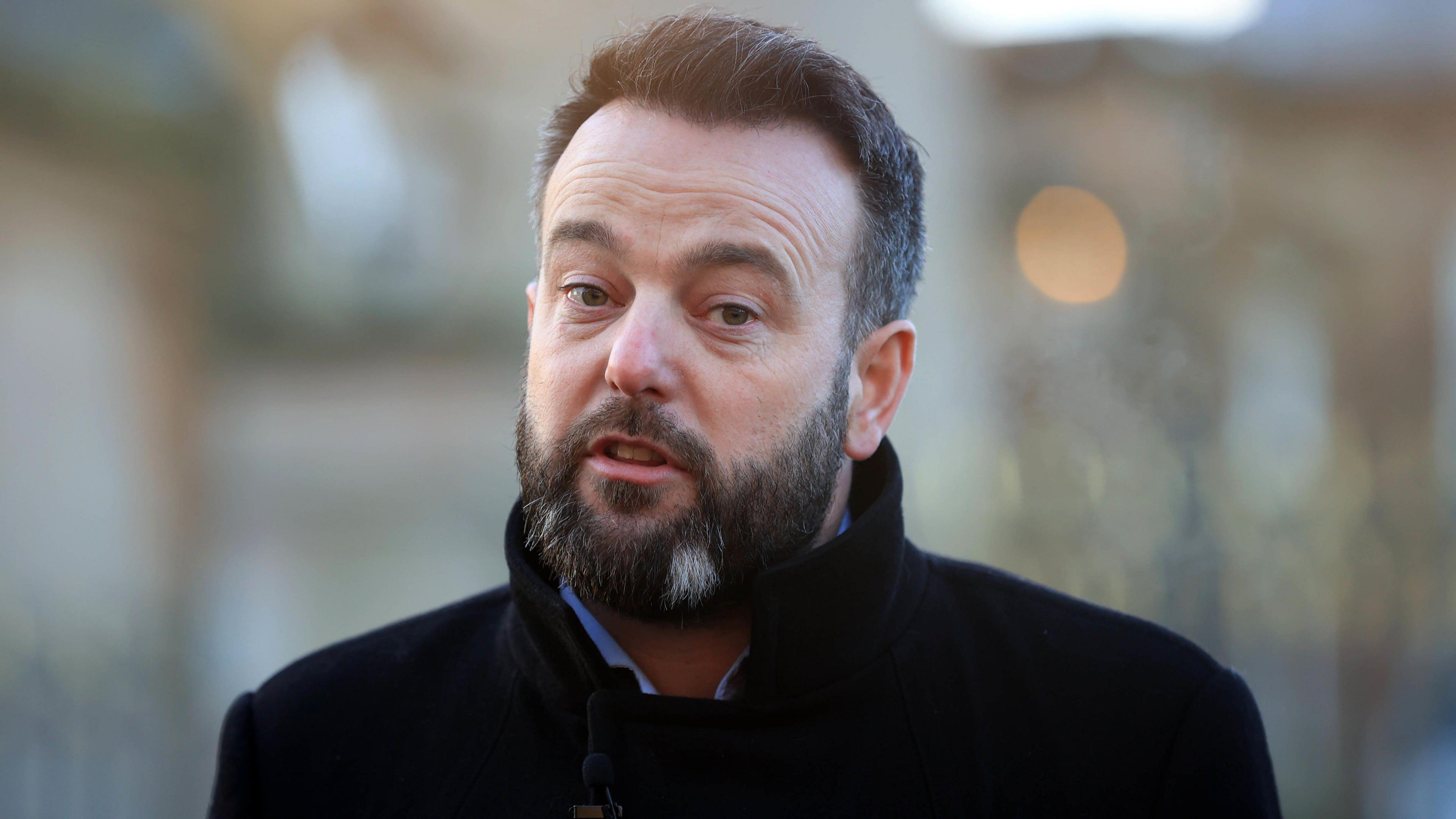
Colum Eastwood said he is confident in the "safeguards" in the law
- Published
The former leader of the Social Democratic and Labour Party (SDLP) and MP for Foyle has said that he will vote in favour of assisted dying legislation when it comes before the House of Commons.
Colum Eastwood said that his decision was influenced by "all the people that I have known who have had difficult, bad deaths".
Eastwood said he was confident that "there are enough safeguards in this law".
Also speaking on the programme, Democratic Unionist Party (DUP) leader Gavin Robinson said he would vote against the bill, citing concerns over people feeling pressured to end their own lives.
On Friday MPs will vote on a private members bill to give terminally ill people in England and Wales the right to choose to end their life.
Assisted dying is a devolved matter in Northern Ireland meaning it is up to elected politicians if they want to change the law.
Speaking to the BBC's Good Morning Ulster programme, Eastwood said he had "always felt that some of form of legislation to deal with this issue was important".
"I honestly think there isn’t a family in Northern Ireland that hasn’t been affected by somebody who had to suffer at the end of their life," he added.
Eastwood said that be believes in the "sanctity of life" but also believes in "dignity in death".
Eastwood said that it was "difficult" to reach a position on the bill, adding that that the risk of people feeling pressured to end their lives was the "biggest issue that I had to grapple with".
However, he said that "how onerous the process is" under the proposed legislation had given him confidence in this area.
"I don’t think people will go through that onerous process because they feel under pressure," he said.
Eastwood said that his party leader Claire Hanna would "in the coming days I'm sure... make her position clear".
How could the law change on assisted dying?
The proposed legislation says that anyone who wants to end their life must:
Be over 18 and live in England and Wales, and have been registered with a GP for at least 12 months
Have the mental capacity to make the choice and be deemed to have expressed a clear, settled and informed wish, free from coercion or pressure
Be expected to die within six months
Make two separate declarations, witnessed and signed, about their wish to die
Satisfy two independent doctors that they are eligible - with at least seven days between each assessment
Under the proposals, a High Court judge would have to rule each time a person makes a request to end their life.
After the judge's ruling, a patient would have to wait 14 days before acting.
A doctor would prepare the substance being used to end the patient's life, but the person would take it themselves. The bill does not say which drug would be used.
It would be illegal to coerce someone into declaring they want to end their life, with a possible 14-year prison sentence.
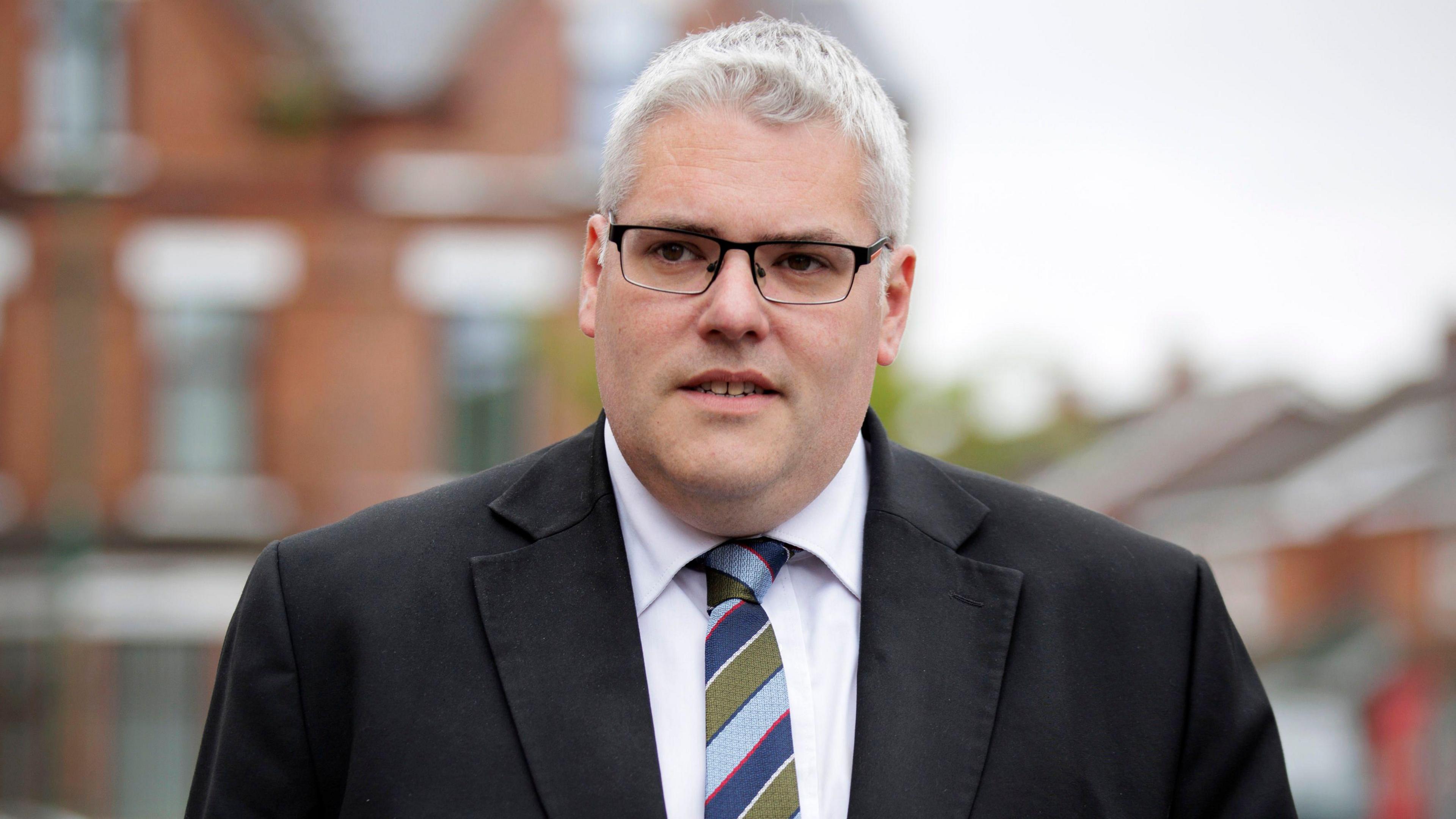
Gavin Robinson said his "pro-life" position and concerns over process meant he would oppose the bill
DUP Leader Gavin Robinson said he didn't "have any reassurances around safeguards" within the legislation.
The MP for East Belfast said that because the legislation was introduced as a private members bill, rather than as government legislation, it was "devoid of any information, consultations, white paper, [or] pre-legislative scrutiny".
"We don't have the opportunity to consider impact reports, all of which would be normal in ordinary legislative terms."
Robinson said it was "extraordinary" way to introduce "such a seismic proposal, a proposal that will change care givers to killers".
Robinson said that while many of his concerns with this legislation were around "process" he said: "I can’t think of a process that would leave me to support this proposition."
Describing himself as "pro-life", Robinson said if someone was suffering he would want to "ease pain and ease burden but I wouldn’t want to end life".
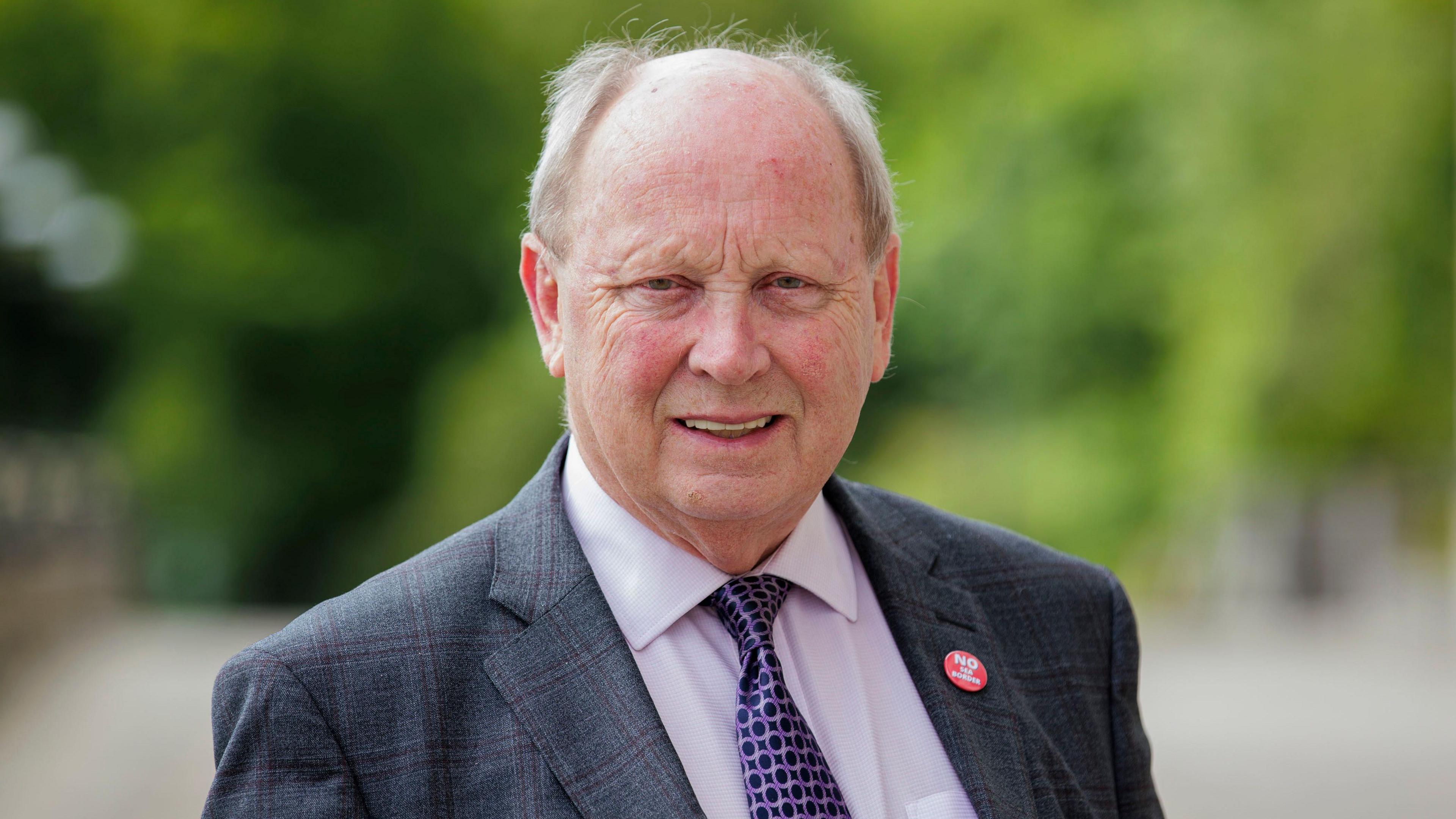
Jim Allister said he will also vote against the bill
Jim Allister told BBC Radio Foyle’s North West Today programme on Wednesday that he will also vote against the bill.
“I am pro-life in all my approaches to these things,” he said.
“This is quite a shocking interference by the state.
“The state and many charities spend a lot of money, quite rightly, in trying to reduce suicide and yet here we have the state about to sanction and indeed promote assisted suicide – and I just can’t square that circle.
“This is not what Parliamentarians should be doing – which is facilitating the end of life.”
The TUV leader said he feared that if this became legislation it would “diminish the focus on palliative care”.
“It will mean that there is another way out and the state does not need to put the money that it should be putting into palliative care,” the North Antrim MP said.
“This is not a level playing field, palliative care has been neglected by and large and that’s where Parliament’s attention should be.”
'Highly emotive issue'
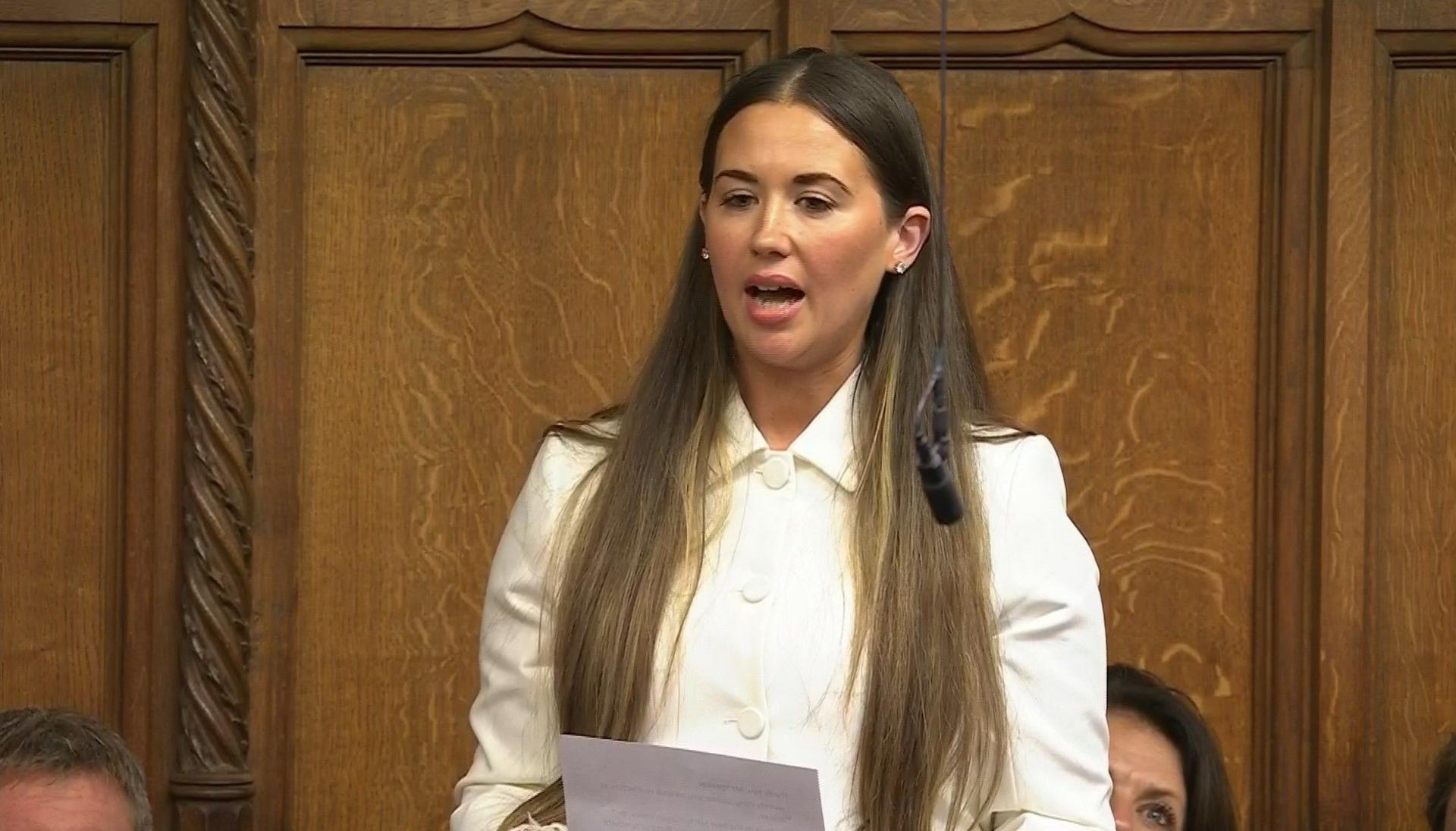
Sorcha Eastwood says she has given a lot of thought to the matter in recent months
The Alliance Party's Sorcha Eastwood, Robin Swann from the Ulster Unionist Party, independent MP Alex Easton and the DUP's other four MPs have all previously said they would vote against the legislation.
Easton told the News Letter, external that "the desire for autonomy and dignity at the end of life is an understandable and powerful sentiment".
However, he added: "My concerns rest on the potential unintended consequences such a change might bring, including the impact on vulnerable individuals who might feel pressured to make decisions based on external influences or a sense of obligation".
Posting on social media, Eastwood said she had "been lobbied strongly by doctors, disability groups, thousands of people in Lagan Valley to oppose this and I will do so".
"I appreciate there are many views on this difficult and highly emotive issue that is literally life and death and I have given a lot of thought to it over the last months- this is not a decision I take lightly, but I respect all views on this and ask that my own view be respected too".
Sinn Féin, who do not take their seats in the House of Commons, did not respond to numerous requests for a statement on the bill.
Earlier this year, a Sinn Féin spokesperson said: "In principle we support legislating for assisted dying in certain circumstances and with robust safeguards, but the legislation should only be progressed once the appropriate services and supports are available."
- Published24 November 2024
